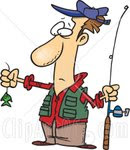Keeping goldfish is the most hassle free hobby. It's very popular too for the same reason. Watching goldfishes swimming in the aquarium has beneficial and calming effect on the mind. Keeping goldfish releases stress and tension. It's pleasurable to watch them go about their lives. These interesting species live for 30 years if proper care is taken. When there is so much benefit from them, goldfish owners should look after them well.
The size of the aquarium is one of the many concerns in keeping goldfish. Blue goldfish does well in outdoor ponds. First buy a tank and then bring the goldfish home. Do not keep goldfish in the plastic bag that you probably got the fish in. Each grown up goldfish requires 20 liters of water.
Goldfish owners have to ensure this otherwise the goldfish will die in the water polluted by their own toilet. The water has to be changed frequently to have clean water in the aquarium. Also the aquarium has to be cleaned regularly. Snails can keep the walls of the aquarium clean.
Create a comfortable setting in the aquarium by planting plastic or natural plants, rocks, reefs, and sand. Goldfish should have place to hide and play around. Air pumps and filters should be installed in the aquarium to provide clean air and water. Diet plays an important role in keeping goldfish.
Goldfish do not digest meat and shouldn't be fed even white meat. They require little amount of food on a daily basis. Live feed can pass on disease causing parasites to the goldfish so they should be avoided. These things should be taken care of in keeping goldfish. Many or all goldfish in the aquarium will live for nearly full life if these things are looked after while keeping goldfish.
If you want to learn more about goldfish or more specifically keeping goldfish then check out http://www.secretsofgoldfish.com
Article Source: http://EzineArticles.com/?expert=Dane_J_Stanton
The size of the aquarium is one of the many concerns in keeping goldfish. Blue goldfish does well in outdoor ponds. First buy a tank and then bring the goldfish home. Do not keep goldfish in the plastic bag that you probably got the fish in. Each grown up goldfish requires 20 liters of water.
Goldfish owners have to ensure this otherwise the goldfish will die in the water polluted by their own toilet. The water has to be changed frequently to have clean water in the aquarium. Also the aquarium has to be cleaned regularly. Snails can keep the walls of the aquarium clean.
Create a comfortable setting in the aquarium by planting plastic or natural plants, rocks, reefs, and sand. Goldfish should have place to hide and play around. Air pumps and filters should be installed in the aquarium to provide clean air and water. Diet plays an important role in keeping goldfish.
Goldfish do not digest meat and shouldn't be fed even white meat. They require little amount of food on a daily basis. Live feed can pass on disease causing parasites to the goldfish so they should be avoided. These things should be taken care of in keeping goldfish. Many or all goldfish in the aquarium will live for nearly full life if these things are looked after while keeping goldfish.
If you want to learn more about goldfish or more specifically keeping goldfish then check out http://www.secretsofgoldfish.com
Article Source: http://EzineArticles.com/?expert=Dane_J_Stanton
